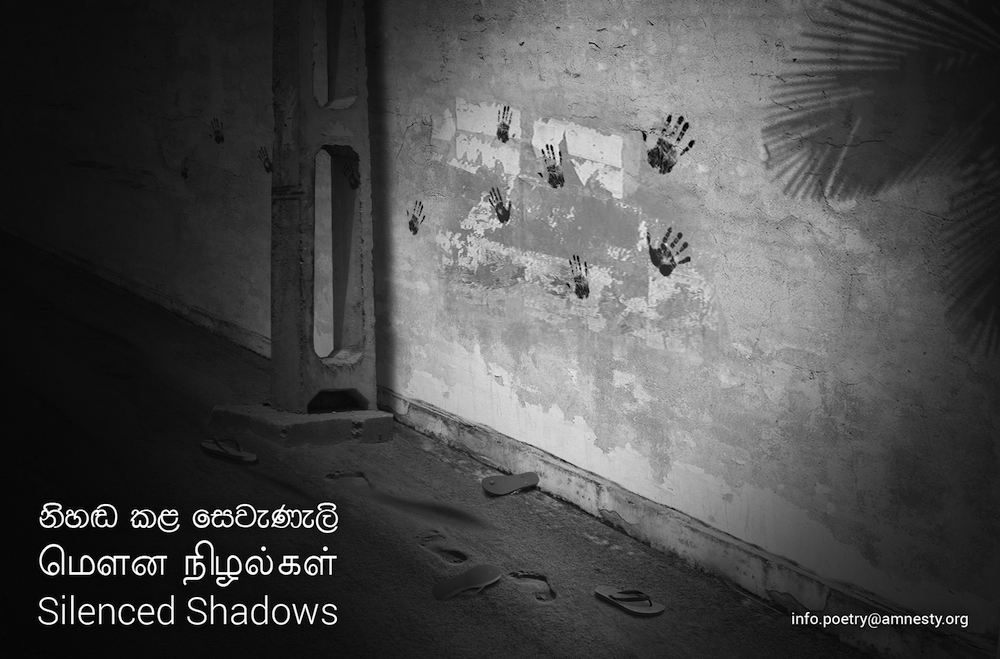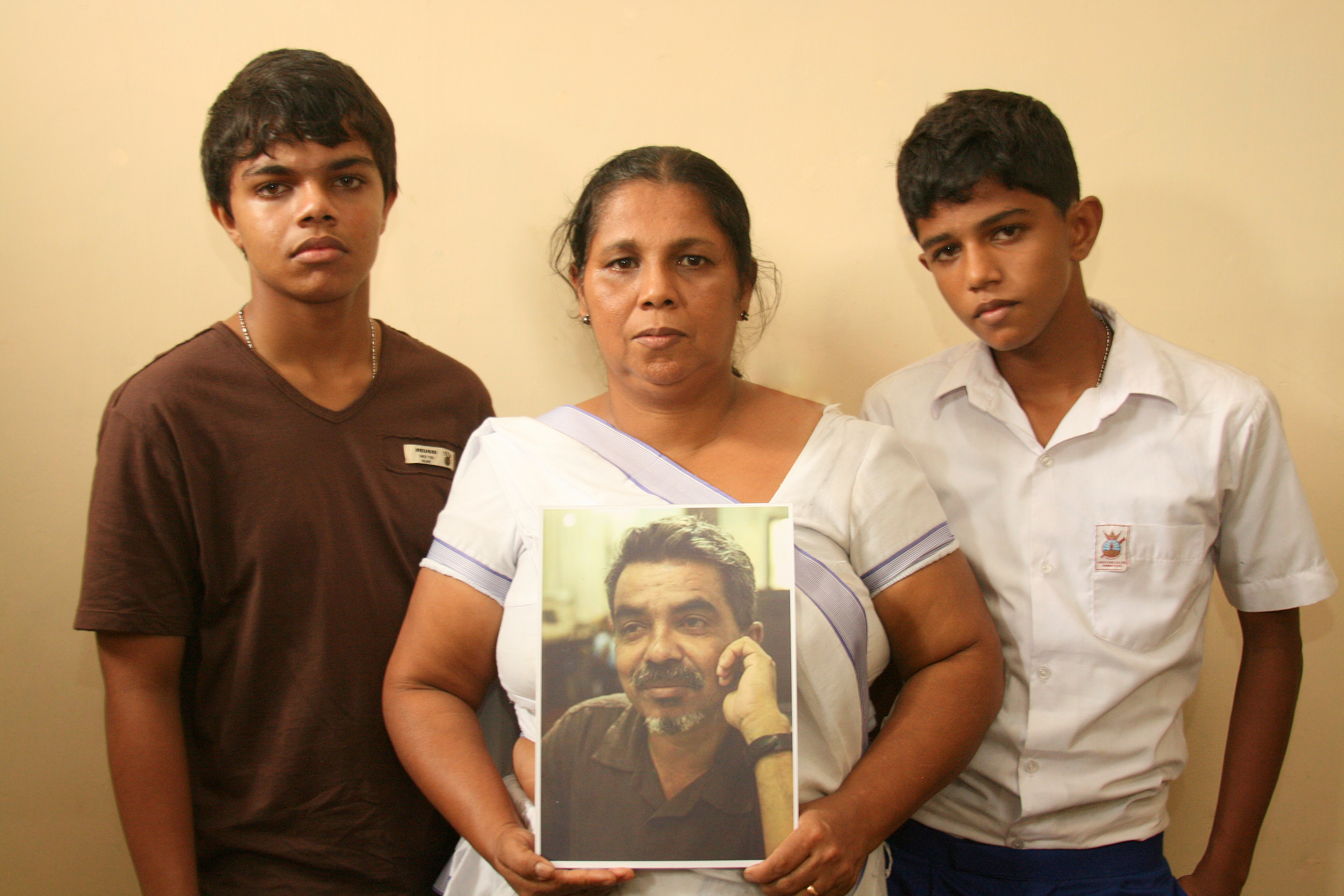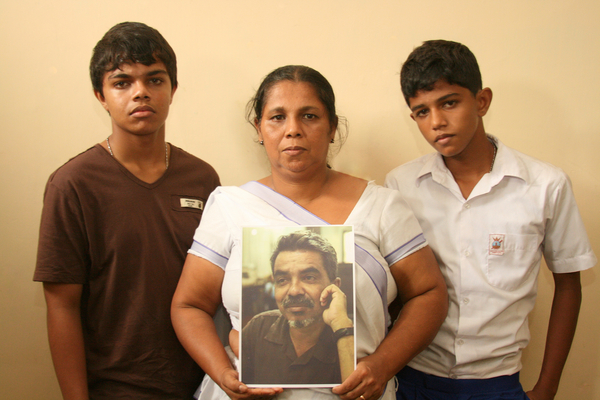
On August 30, the International Day of the Disappeared, Amnesty launched “Silent Shadows” – a poetry competition in Sri Lanka to mark the decades of enforced disappearances experienced there. That sentence raises at least four questions:
- Why enforced disappearances? Enforced disappearances are a particularly heinous form of human rights violation. Government agents detain a person and the government later denies any knowledge or responsibility for his or her whereabouts or status. The victims are often tortured and in fear for their lives, while their relatives live with the agony of uncertainty over their loved ones’ fate.




